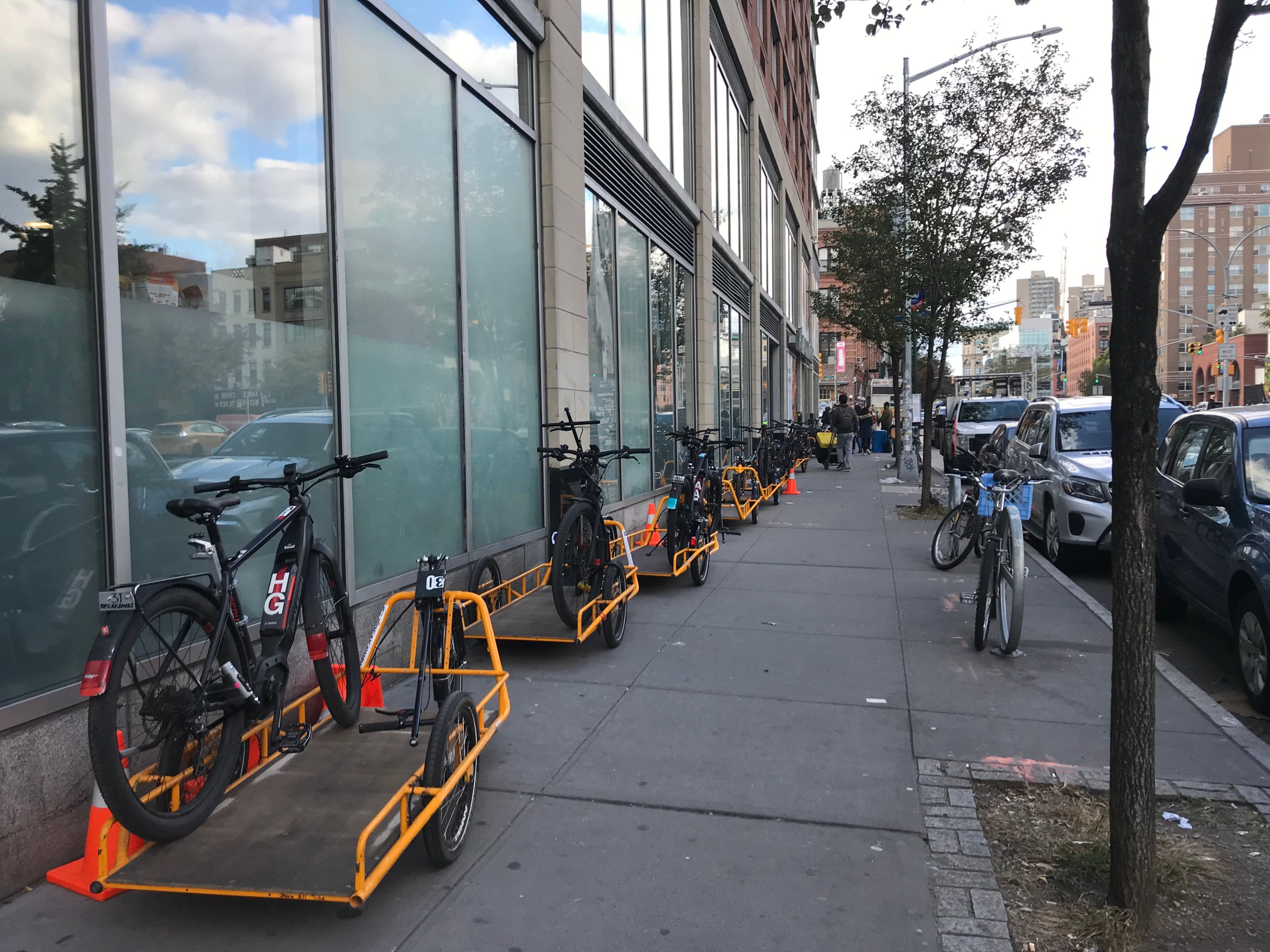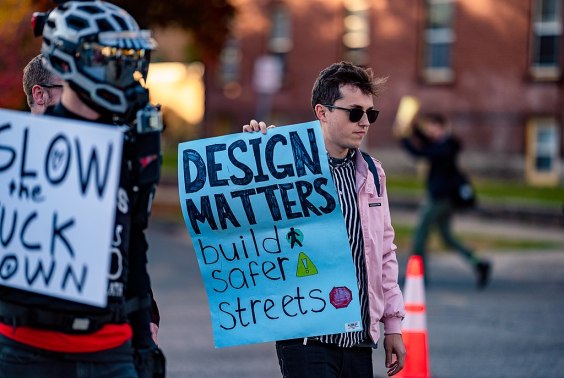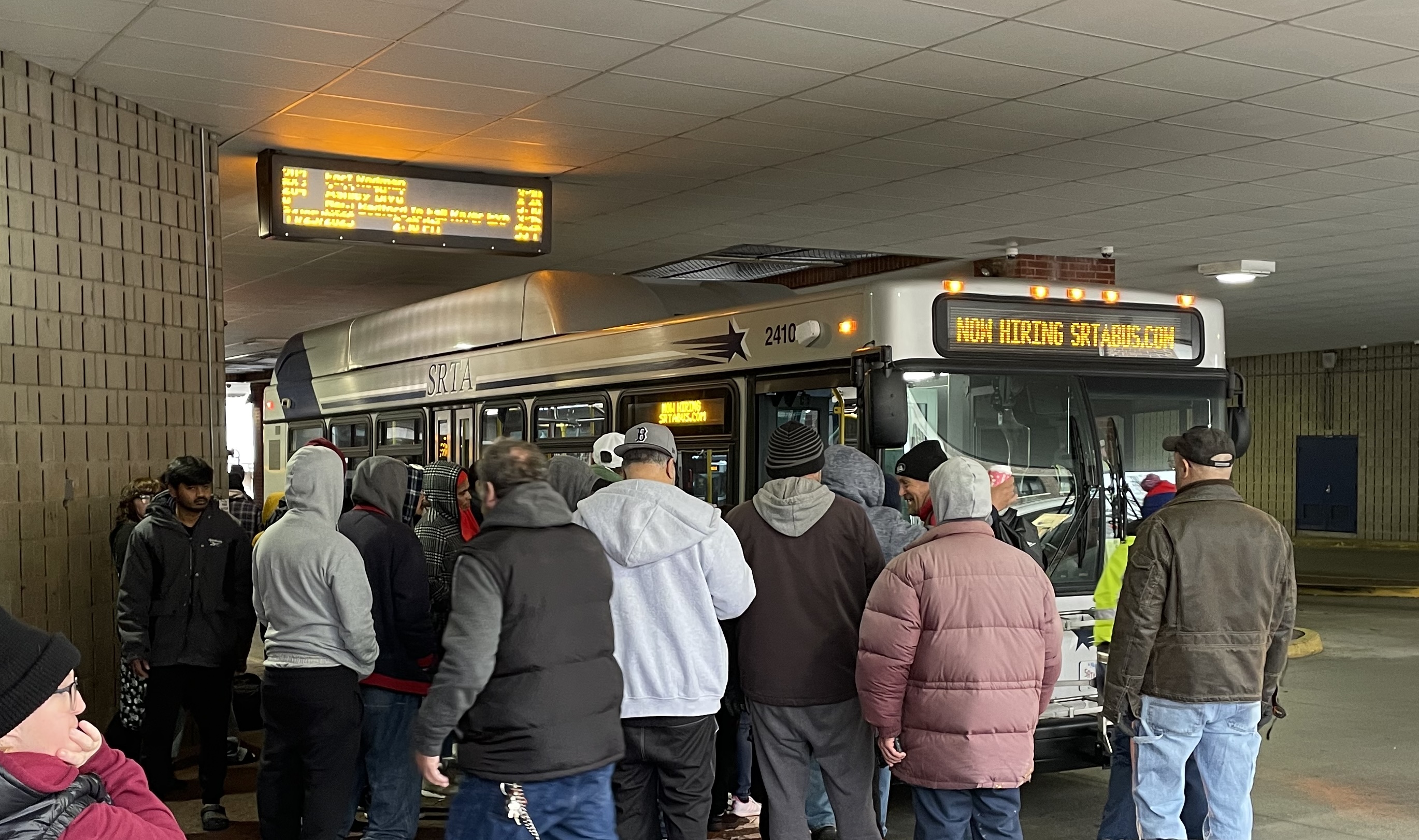The City of Boston has engaged a consulting firm to propose new policies and design a pilot program for e-cargo bike deliveries in an effort to reduce congestion and air pollution on downtown streets.
Last August, the city had issued a "request for information" from potential vendors and delivery companies “to understand how e-cargo bikes could fit into Boston’s delivery landscape.”
“Parcel delivery services must be reconstructed to support our goal of carbon neutrality, get goods to our residents in a more efficient manner, and optimize the use of our curb space,” the city wrote in its advertisement.
The city received 13 responses to that request, but none of them came from delivery companies. Most respondents were consulting firms or e-cargo bike vendors who were interested in supporting a new bike-delivery program, but not in launching one on their own.
A Boston Transportation Department spokesperson told Streetsblog that the 2020 request for information had been advertised to delivery companies, but staff suspect that "a lack of financial or political incentives" may be to blame for their lack on interest.
Now, the city is aiming to change those financial and political incentives to make them more favorable to bike deliveries.
In March, the Boston Transportation Department published a "post-solicitation report" to summarize the responses from the August 2020 request for information.
Under a heading titled "next steps," the report reveals that
"The City of Boston, through the Bloomberg Philanthropies American Cities Climate Challenge, has contracted with Nelson/Nygaard to design and potentially launch an e-cargo bike delivery pilot program. Over the next few months the City will work to identify the potential regulatory, administrative, and operational challenges to e-cargo bike delivery within the City of Boston, and establish a strategy to address those challenges. The City is targeting spring of 2022 for the launch of an e-cargo bike delivery pilot program."
"We are looking into different e-cargo bike delivery models, some that involve large-scale delivery operators, and others focused on local businesses," wrote a Boston Transportation Department spokesperson in an email to Streetsblog. "We are having conversations within the City government and with external stakeholders to determine which model would have the most impact on achieving the City's mobility, safety, and climate goals."
Boston’s request apparently anticipates a formal legalization of pedal-assist electric bikes from Massachusetts lawmakers. Language to define and regulate e-bikes had been included in the Massachusetts Senate’s transportation bond bill last year, but that language was stripped from the final version. Similar legislation has been re-filed in both chambers for the 2021 session.






